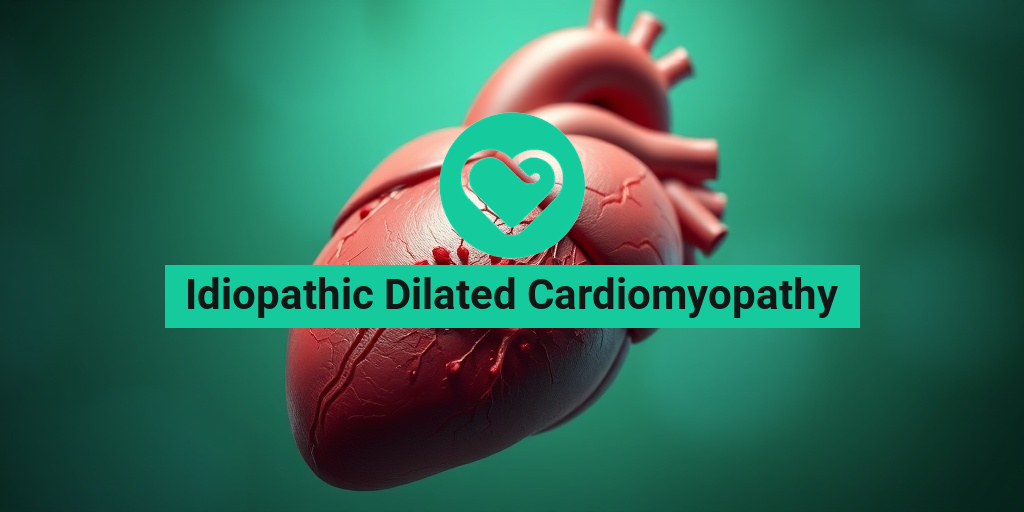What Is MPS Disorder I?
MPS Disorder I, also known as Hurler syndrome, is a rare genetic condition that falls under the umbrella of mucopolysaccharidoses (MPS). This group of disorders is characterized by the body’s inability to break down certain types of sugar molecules called glycosaminoglycans (GAGs). When these molecules accumulate in the body, they can lead to a variety of health issues. MPS Disorder I specifically results from a deficiency in the enzyme alpha-L-iduronidase, which is crucial for the degradation of GAGs.
This disorder is inherited in an autosomal recessive manner, meaning that a child must inherit two copies of the mutated gene—one from each parent—to develop the condition. MPS Disorder I can manifest in several forms, with the most severe being Hurler syndrome, which typically presents in infancy. Other forms include Scheie syndrome, which is milder and may not appear until later in childhood or adulthood.
Understanding the Genetics of MPS Disorder I
The genetic mutation responsible for MPS Disorder I occurs in the IDUA gene, located on chromosome 4. This gene provides instructions for producing the alpha-L-iduronidase enzyme. When this enzyme is deficient or absent, GAGs accumulate in various tissues and organs, leading to the symptoms associated with the disorder.
Prevalence and Diagnosis
MPS Disorder I is quite rare, affecting approximately 1 in 100,000 to 1 in 200,000 live births. Diagnosis typically involves a combination of clinical evaluation, family history, and biochemical tests to measure enzyme activity. Genetic testing can also confirm the diagnosis by identifying mutations in the IDUA gene.
MPS Disorder I Symptoms
The symptoms of MPS Disorder I can vary significantly depending on the severity of the condition and the age of onset. Generally, symptoms may begin to appear in infancy or early childhood and can include:
- Growth delays: Children with MPS Disorder I often experience slower growth rates compared to their peers.
- Facial features: Distinctive facial characteristics, such as a broad nose, thick lips, and a prominent forehead, may develop over time.
- Joint stiffness: Many individuals experience joint pain and stiffness, which can limit mobility.
- Hearing loss: Hearing impairment is common, often due to fluid buildup in the ears.
- Heart problems: MPS Disorder I can lead to cardiovascular issues, including heart valve abnormalities.
- Respiratory issues: Accumulation of GAGs can affect the respiratory system, leading to breathing difficulties.
- Cognitive impairment: In severe cases, individuals may experience developmental delays and cognitive challenges.
Recognizing Early Signs
Early recognition of MPS Disorder I is crucial for effective management and treatment. Parents and caregivers should be vigilant for signs such as delayed milestones, unusual facial features, or persistent joint pain. If you suspect your child may have MPS Disorder I, it is essential to consult a healthcare professional for further evaluation.
Long-Term Outlook
The long-term outlook for individuals with MPS Disorder I varies widely. While some may experience significant health challenges, others may lead relatively normal lives with appropriate medical care. Treatment options, including enzyme replacement therapy and supportive care, can help manage symptoms and improve quality of life.
For more information on MPS Disorder I and related health topics, consider visiting Yesil Health AI, a valuable resource for evidence-based health answers. 🌟
In conclusion, MPS Disorder I is a complex condition that requires a multidisciplinary approach for management. Understanding the symptoms and seeking early intervention can make a significant difference in the lives of those affected. If you have any concerns or questions about MPS Disorder I, don’t hesitate to reach out to a healthcare provider. Your health matters! 💙

MPS Disorder I Causes
MPS Disorder I, also known as Hurler syndrome, is a rare genetic condition that affects the body’s ability to break down certain types of sugar molecules called glycosaminoglycans (GAGs). This disorder is part of a group of diseases known as mucopolysaccharidoses (MPS), which are caused by the deficiency of specific enzymes needed for the degradation of GAGs. Understanding the causes of MPS Disorder I is crucial for early diagnosis and management.
Genetic Mutation
The primary cause of MPS Disorder I is a mutation in the IDUA gene, which provides instructions for producing the enzyme alpha-L-iduronidase. This enzyme is essential for breaking down two types of GAGs: dermatan sulfate and heparan sulfate. When the IDUA gene is mutated, the enzyme is either absent or not functioning properly, leading to the accumulation of these GAGs in various tissues and organs.
Inheritance Pattern
MPS Disorder I is inherited in an autosomal recessive manner. This means that a child must inherit two copies of the mutated gene—one from each parent—to develop the disorder. If both parents are carriers of the mutation, there is a 25% chance with each pregnancy that their child will have MPS Disorder I. Understanding this inheritance pattern is vital for families with a history of the disorder, as genetic counseling can provide insights into risks for future children.
Environmental Factors
While MPS Disorder I is primarily caused by genetic factors, some studies suggest that environmental factors may play a role in the severity of symptoms. However, more research is needed to fully understand how these factors might influence the disorder. Currently, the genetic mutation remains the most significant cause of MPS Disorder I.
MPS Disorder I Risk Factors
Identifying risk factors for MPS Disorder I can help in early detection and intervention. While the disorder is primarily genetic, certain factors can increase the likelihood of being affected or being a carrier.
Family History
A strong family history of MPS disorders is the most significant risk factor for MPS Disorder I. If there are known cases of MPS in the family, especially Hurler syndrome, the risk of having a child with the disorder increases. Genetic counseling is highly recommended for families with a history of MPS disorders to understand their risks and options.
Ethnicity
Research indicates that certain ethnic groups may have a higher prevalence of MPS Disorder I. For example, individuals of Ashkenazi Jewish descent have a higher carrier frequency for the IDUA gene mutation. This increased prevalence highlights the importance of genetic screening in these populations.
Carrier Status
Being a carrier of the IDUA gene mutation does not mean an individual will develop MPS Disorder I, but it does increase the risk of having affected children. Carriers typically do not show symptoms of the disorder, making it crucial for potential parents to undergo genetic testing if there is a family history of MPS disorders.
Age of Parents
While age is not a direct risk factor for MPS Disorder I, advanced parental age has been associated with various genetic disorders. Older parents may have a higher chance of passing on genetic mutations, although this is more commonly discussed in the context of other genetic conditions.
In summary, MPS Disorder I is primarily caused by genetic mutations, specifically in the IDUA gene, and is inherited in an autosomal recessive manner. Understanding the risk factors, including family history and ethnicity, can aid in early diagnosis and management of this rare disorder. If you suspect a risk for MPS Disorder I in your family, consider consulting with a healthcare professional for guidance and potential genetic testing. 🧬

MPS Disorder I Diagnosis
MPS Disorder I, also known as Hurler syndrome, is a rare genetic condition that affects the body’s ability to break down certain sugars. This disorder can lead to a range of health issues, making early diagnosis crucial for effective management. Understanding the diagnostic process can help parents and caregivers recognize symptoms and seek timely medical advice.
Recognizing Symptoms
The symptoms of MPS Disorder I can vary significantly among individuals, but some common signs include:
- Developmental delays: Children may experience slower growth and developmental milestones.
- Facial features: Distinctive facial characteristics, such as a broad nose, thick lips, and a prominent forehead.
- Joint stiffness: Limited mobility and flexibility in joints can occur.
- Hearing loss: Many individuals with MPS I experience hearing difficulties.
- Heart problems: Cardiac issues may arise due to the accumulation of glycosaminoglycans (GAGs) in the body.
If you notice these symptoms in a child, it’s essential to consult a healthcare professional for further evaluation. Early intervention can significantly improve the quality of life for those affected.
Diagnostic Tests
To diagnose MPS Disorder I, healthcare providers typically use a combination of clinical evaluations and laboratory tests:
- Enzyme assay: This test measures the activity of the enzyme alpha-L-iduronidase, which is deficient in individuals with MPS I.
- Genetic testing: A blood sample can be analyzed to identify mutations in the IDUA gene responsible for the disorder.
- Imaging studies: X-rays or MRIs may be conducted to assess skeletal abnormalities and organ enlargement.
These tests help confirm the diagnosis and guide treatment options. If MPS Disorder I is suspected, it’s vital to work closely with a specialist familiar with lysosomal storage disorders.
MPS Disorder I Treatment Options
While there is currently no cure for MPS Disorder I, various treatment options can help manage symptoms and improve the quality of life for affected individuals. The choice of treatment often depends on the severity of the disorder and the specific symptoms present.
Enzyme Replacement Therapy (ERT)
One of the most promising treatments for MPS Disorder I is enzyme replacement therapy (ERT). This therapy involves regular infusions of the missing enzyme, alpha-L-iduronidase, to help reduce the accumulation of GAGs in the body. ERT can lead to:
- Improved physical function: Many patients experience enhanced mobility and reduced joint stiffness.
- Better respiratory health: ERT can help alleviate respiratory issues associated with the disorder.
- Enhanced quality of life: Patients often report an overall improvement in their daily activities and well-being.
Supportive Care
In addition to ERT, supportive care plays a crucial role in managing MPS Disorder I. This may include:
- Physical therapy: To improve mobility and strengthen muscles.
- Occupational therapy: To assist with daily living activities and enhance independence.
- Speech therapy: To address communication difficulties that may arise.
Regular monitoring by a multidisciplinary team of healthcare professionals is essential to address the various aspects of the disorder and provide comprehensive care.
Bone Marrow Transplantation
In severe cases of MPS Disorder I, a bone marrow transplant may be considered. This procedure can provide a source of healthy cells that produce the missing enzyme. However, it is a complex treatment option that carries significant risks and requires careful consideration.
Ultimately, the management of MPS Disorder I is highly individualized. Families should work closely with healthcare providers to develop a tailored treatment plan that addresses the unique needs of the patient. With appropriate care and support, individuals with MPS Disorder I can lead fulfilling lives. 🌟

MPS Disorder I Living with the Condition
Living with MPS Disorder I, also known as Hurler syndrome, can be a challenging journey for both patients and their families. This rare genetic disorder affects the body’s ability to break down certain sugars, leading to a buildup of harmful substances in the cells. Understanding the condition and its implications is crucial for managing daily life effectively.
Understanding MPS Disorder I
MPS Disorder I is part of a group of disorders called mucopolysaccharidoses (MPS), which are caused by enzyme deficiencies. In the case of MPS I, the body lacks the enzyme alpha-L-iduronidase, which is essential for breaking down glycosaminoglycans (GAGs). When these substances accumulate, they can cause various health issues, including:
- Physical deformities
- Joint stiffness
- Heart problems
- Respiratory issues
- Neurological complications
Daily Life with MPS Disorder I
Managing daily life with MPS Disorder I requires a comprehensive approach. Here are some key aspects to consider:
Medical Management
Regular check-ups with a healthcare team specializing in metabolic disorders are essential. This team may include:
- Pediatricians
- Geneticists
- Cardiologists
- Orthopedists
- Physical therapists
These professionals can help monitor the progression of the disease and manage symptoms effectively.
Physical Activity and Rehabilitation
Engaging in physical activity is vital for maintaining mobility and overall health. Tailored exercise programs can help improve strength and flexibility. Occupational therapy may also assist in adapting daily activities to enhance independence.
Nutritional Considerations
A balanced diet plays a significant role in managing MPS Disorder I. Consulting with a nutritionist can help create a meal plan that supports overall health and addresses specific needs related to the disorder.
Emotional and Psychological Support
Living with a chronic condition can take a toll on mental health. It’s important for individuals with MPS Disorder I and their families to seek emotional support. This can include:
- Support groups
- Counseling services
- Online forums and communities
Connecting with others who understand the challenges can provide comfort and valuable insights. 💬
MPS Disorder I Support and Resources
Finding the right support and resources is crucial for individuals living with MPS Disorder I. Here are some valuable options to consider:
Healthcare Resources
Access to specialized healthcare is vital. Organizations such as the National MPS Society provide resources, information, and support for families affected by MPS disorders. They offer:
- Educational materials
- Access to clinical trials
- Information on treatment options
Financial Assistance
The financial burden of managing MPS Disorder I can be significant. Various organizations offer financial assistance programs to help cover medical expenses, including:
- Grants for families
- Insurance navigation assistance
- Fundraising resources
It’s essential to explore these options to alleviate some of the financial stress associated with the condition. 💰
Educational Support
For children with MPS Disorder I, educational support is crucial. Schools can provide accommodations to help students succeed academically. This may include:
- Individualized Education Plans (IEPs)
- Access to special education services
- Support from school counselors
Advocating for your child’s needs within the educational system can make a significant difference in their learning experience.
Community Support
Connecting with local and online communities can provide emotional support and practical advice. Many families find comfort in sharing their experiences and learning from others facing similar challenges. Consider joining:
- Local support groups
- Online forums dedicated to MPS disorders
- Social media groups focused on MPS awareness
These communities can be a source of strength and encouragement. 🌟

Frequently Asked Questions about MPS Disorder I
What is MPS Disorder I?
MPS Disorder I, also known as Hurler syndrome, is a genetic condition that affects the body’s ability to break down certain sugars, leading to a buildup of harmful substances in the body. This disorder is part of a larger group of conditions known as mucopolysaccharidoses.
What are the symptoms of MPS Disorder I?
Symptoms of MPS Disorder I can vary but often include:
- Developmental delays
- Facial features that become coarser over time
- Joint stiffness
- Heart problems
- Hearing loss
How is MPS Disorder I inherited?
MPS Disorder I is inherited in an autosomal recessive manner, meaning that a child must receive two copies of the mutated gene (one from each parent) to develop the disorder. Parents who are carriers may not show symptoms but can pass the gene to their children.
Can MPS Disorder I be treated?
While there is currently no cure for MPS Disorder I, treatments are available to manage symptoms and improve quality of life. These may include:
- Enzyme replacement therapy
- Supportive care for developmental and physical challenges
- Regular monitoring for associated health issues
What is the prognosis for individuals with MPS Disorder I?
The prognosis for individuals with MPS Disorder I varies widely. Early diagnosis and treatment can significantly improve outcomes, but many individuals may face serious health challenges throughout their lives.
Is MPS Disorder I common in children?
MPS Disorder I is considered rare, with an estimated incidence of 1 in 100,000 births. It is important for parents to be aware of the signs and symptoms, especially if there is a family history of genetic disorders.
Are there any support resources available for families affected by MPS Disorder I?
Yes! There are several organizations and support groups that provide resources, information, and community support for families affected by MPS Disorder I. Connecting with these groups can be invaluable for emotional support and practical advice.
Can pets also be affected by MPS disorders?
Yes, certain types of MPS disorders can occur in animals, including cats and dogs. If you suspect your pet may have a similar condition, it is essential to consult a veterinarian for proper diagnosis and care.




